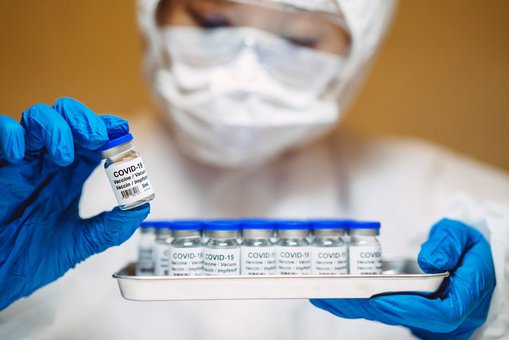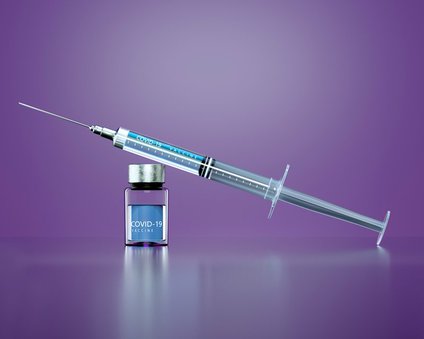They sit on opposite sides of the aisle in Federal Parliament, but two doctors-turned-MPs have been working together behind the scenes to gain their colleagues’ support for laws permitting a new genetic procedure to prevent a devastating and deadly disease.
Labor’s Dr Mike Freelander FRACP and the Liberal Party’s Dr Katie Allen FRACP both witnessed the devastating effects of mitochondrial disease in their work as paediatricians.
“It’s pretty harrowing,” said Dr Freelander, who has worked as a paediatrician for 37 years. “It really is awful to see the families go through that.”
The pair, who also put their medical expertise to use in the fight against COVID-19 as part of the national COVID-19 health and research advisory committee, are helping inform their parliamentary colleagues about mitochondrial disease, and how IVF technology changes will help the small number of affected families.
The Sydney Morning Herald, 7 February 2021
The long standing myth that illnesses like anorexia and bulimia only plague Anglo Australians has been smashed by a clinic in Sydney’s west that’s using halal food menus and multicultural social workers to radically change the life of eating disorder patients.
Westmead Adolescent and Young Adult Medicine Clinic head Dr Michael Kohn FRACP said the centre’s rare multicultural approach to treating eating disorders has been 20 years in the making.
“In 2000, we found there were two quite large cultural communities from whom young people weren’t coming through, Pacific Islanders and Arabic communities. Of course, they also get eating disorders, but they weren’t coming for help,” he said.
The centre has since created a culturally sensitive approach to treatment to allow those missing out on help to come forward.
The clinic adapts food plans to include traditional foods the patient is used to eating and has engaged numerous multicultural social workers to overcome any language barriers.
Herald Sun, 1 February 2021
The world will not be fully vaccinated from COVID-19 for six years, a timeline that could have serious consequences for Australia, a leading expert has warned.
Infectious diseases expert Associate Professor Sanjaya Senanayake FRACP made the claim to the National Press Club on Wednesday, urging the federal government to assist foreign vaccine rollouts once Australia is adequately covered.
He gave a grim forecast of the future, saying more than 40 new infections have appeared around the world in the last 50 years alone.
“Our global population is growing, we are impinging more and more natural habitats and interacting with wild animals and our inter-connectedness globally has never been as great as it is now,” he said.
“Therefore, the next pandemic is not 100 years away – it is just around the corner.”
With vaccine rollouts under way in just 70 countries, Dr Senanayake said worldwide protection would take a lot longer than widely thought.
“At the current rate of vaccination, it is estimated we won’t reach global coverage of 75 per cent with vaccines for about six years. Not one or two years but six years,” he warned.
Herald Sun, 11 February 2021
The authors of a report on COVID-19 in Victorian schools and early learning centres say Australia needs a national plan to ensure schools are the last places to close and the first to open in any further outbreaks.
Schools will reopen across the state on Thursday after Premier Daniel Andrews announced on Wednesday morning that the statewide lockdown would end at midnight. Victoria has more than 1 million school students.
Professor Fiona Russell FRACP and Professor Sharon Goldfeld AFPHM, FRACP, the authors of the study, said snap lockdowns were “distressing” for everyone, particularly for Melbourne students who experienced almost two terms of remote learning last year.
The pair were part of a team from the Murdoch Children’s Research Institute that analysed COVID-19 cases in Victorian schools and early learning centres during the state’s first and second waves of coronavirus.
The report concluded community transmission drove school transmission and schools should be shut only as a final resort, based on levels of community transmission and their location.
It recommended a series of baseline mitigation measures – hygiene, physical distancing, enhanced cleaning and ventilation – that could be dialled up as community transmission rose.
WA Today, 17 February 2021
As the first phase of the COVID-19 vaccine rollout begins, safety monitoring systems are in place to detect any safety issues.
All vaccine recipients will be followed up with an automated text message three days after the vaccine — and another after eight days — under the AusVaxSafety run through the National Centre for Immunisation and Research and Surveillance scheme asking if they have had any side effects.
Paediatrician and infectious disease specialist Professor Kristine Macartney FRACP from the NCIRS said the system had already been up and running for four years.
“It is an SMS survey that goes to those vaccinated. A text survey will be sent out on day three and day eight and we ask if they have had any new symptoms, what they are and if they have sought medical attention for those,” she said.
“We know there are some known predictable responses to vaccines like sore arm for a day or two or low grade fever or muscle aches for a day, so we see how the vaccine is performing in real life.”
The Daily Telegraph, 23 February 2021


Australians with chronic health conditions are having to take drastic stop-gap measures because of a continuing medication shortage, medical specialists say.
Many essential medications have been in short supply globally since coronavirus wreaked havoc on healthcare supply chains. Australia is not set up to produce drugs locally due to the difficulty in remaining cost competitive with offshore manufacturing.
That means Australian doctors and pharmacists have been left with the job of finding creative ways to manage their patients' health conditions. Adelaide endocrinologist Wilton Braund FRACP said some of the medications used to treat hyperthyroidism, such as cortisone and carbimazole, had been in short supply.
"Not to put a fine point on it, some of these medications, if you can't get them, you die," Dr Braund said. "You can get a heart rhythm disturbance from eking out your carbimazole for thyroid disease."
It is estimated that about three in every 1,000 people suffers from hyperthyroidism.
Dr Braund said pharmacists had become so desperate some had been ringing overseas suppliers to source medication and then applying to access it through a federal special-access scheme.
"You can't expect a suburban pharmacist to spend their time on overseas phone calls to countries that may not speak English as their first language, that's not on," he said.
ABC News, 20 January 2021
Members in the media
Members in the media
Health professionals
warn Australia is struggling to deal with post-COVID-19 medication shortage
Health professionals
warn Australia is struggling to deal with post-COVID-19 medication shortage
READ MORE

Infectious diseases expert Sanjaya Senanayake says
world won’t be protected from COVID-19 for six years
Infectious diseases expert Sanjaya Senanayake says
world won’t be protected from COVID-19 for six years






